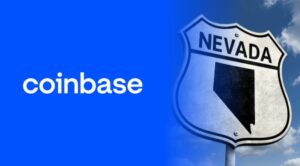Key Moments:
- Ontario’s iGaming sector recorded approximately CAD $3.2 billion in revenue during its third year, with over CAD $642 million in tax revenue for the province.
- Ontario’s regulated online gambling market has gathered more than CAD $1.4 billion in provincial tax revenue since April 2022, supported by over CAD $82 billion in wagers in its third year.
- Alberta’s single government-run Play Alberta platform offers limited options, prompting many residents to choose offshore gambling sites and leaving significant potential revenue unrealized.
Ontario Sets the Standard for Regulated iGaming
Ontario’s approach to online gambling centers on a competitive regulatory environment, where numerous licensed private operators have shifted play away from offshore sites. In its third year, this regulated model has delivered about CAD $3.2 billion in gross revenue and contributed upwards of CAD $642 million to provincial tax coffers. Since its inception in April 2022, Ontario’s iGaming initiative has drawn over CAD $1.4 billion in total tax income for the province, fueled by in excess of CAD $82 billion wagered in the latest tracked year.
Online casino offerings accounted for the majority of this income, generating nearly CAD $2.4 billion, which is about three-quarters of overall market revenue. Sports betting was responsible for close to CAD $724 million, while online poker contributed around CAD $66 million, highlighting consumer behaviors among Ontario gamblers.
The Alcohol and Gaming Commission of Ontario governs private sector operators, requiring them to offer responsible gambling tools including spending caps and cooling-off windows. This regulatory regimen captures a significant volume of what was once unlicensed activity, benefiting both oversight and public funding.
Alberta’s Approach Leads Residents to Offshore Options
In Alberta, the online gambling scene is far more restrictive. The only legal option, Play Alberta, is overseen by the provincial government and features a modest selection of games and limited promotional offers. As a result, many Albertans turn to offshore casino sites, which present broader game libraries, generous welcome bonuses, and swifter payment mechanisms.
Though these platforms are accessible for local players, they yield no tax benefit for Alberta, meaning the province forgoes both fiscal revenue and consumer oversight. This position is underscored by market shifts, such as the recent exit of Chumba Casino and Global Poker following VGW’s withdrawal from Canada.
The Alberta government’s commitment to a measured policy has resulted in slow adoption of regulatory reforms, despite introducing legislation to expand iGaming and sports betting. This pace has allowed existing demand to persist outside of regulated channels, posing a missed financial opportunity.
Prospects for Economic Diversification
Alberta’s fiscal framework is heavily influenced by the energy sector, and provincial leaders have a longstanding interest in diversifying revenue sources. Legalizing and regulating iGaming present a potential pathway to stable new income, as well as opportunities in technology and digital services.
Ontario’s experience points out that regulation channels already-existing gambling behaviors into licensed, taxed environments, rather than stimulating new demand. Resulting tax funds in Ontario have been earmarked for healthcare and education, spotlighting the broader benefits of this policy shift. If Alberta were to follow suit, its government could redirect the significant volume of offshore gambling back into the regulated provincial economy while implementing consumer safeguards.
Technology Advancement Through Market Competition
In a competitive landscape, private operators have strong incentives to improve their platforms with sophisticated graphics, superior mobile usability, advanced payment options, and enhanced customer features. These developments typically occur faster within a multi-operator market compared to a sole government-run site, which lacks similar innovation pressures.
Consequently, many Alberta gamers gravitate toward platforms that offer modern experiences and agile customer service – characteristics commonplace in international and offshore providers. Introducing competition could spark investment in Alberta’s digital infrastructure well beyond the gaming vertical itself.
Ultimately, Alberta’s policymakers face a pivotal choice: continue the restrictive status quo, or move to regulate existing demand, recapturing tax revenue and bolstering consumer protections in the process.
iGaming Market Comparison
| Province | Online Gambling Revenue (Latest Reported Year) | Tax Revenue | Primary Market Model |
|---|---|---|---|
| Ontario | CAD $3.2 billion | Over CAD $642 million | Competitive, Licensed Operators |
| Alberta | N/A | N/A | Sole Government-Operated Platform |
Source: Durham Post
- Author


